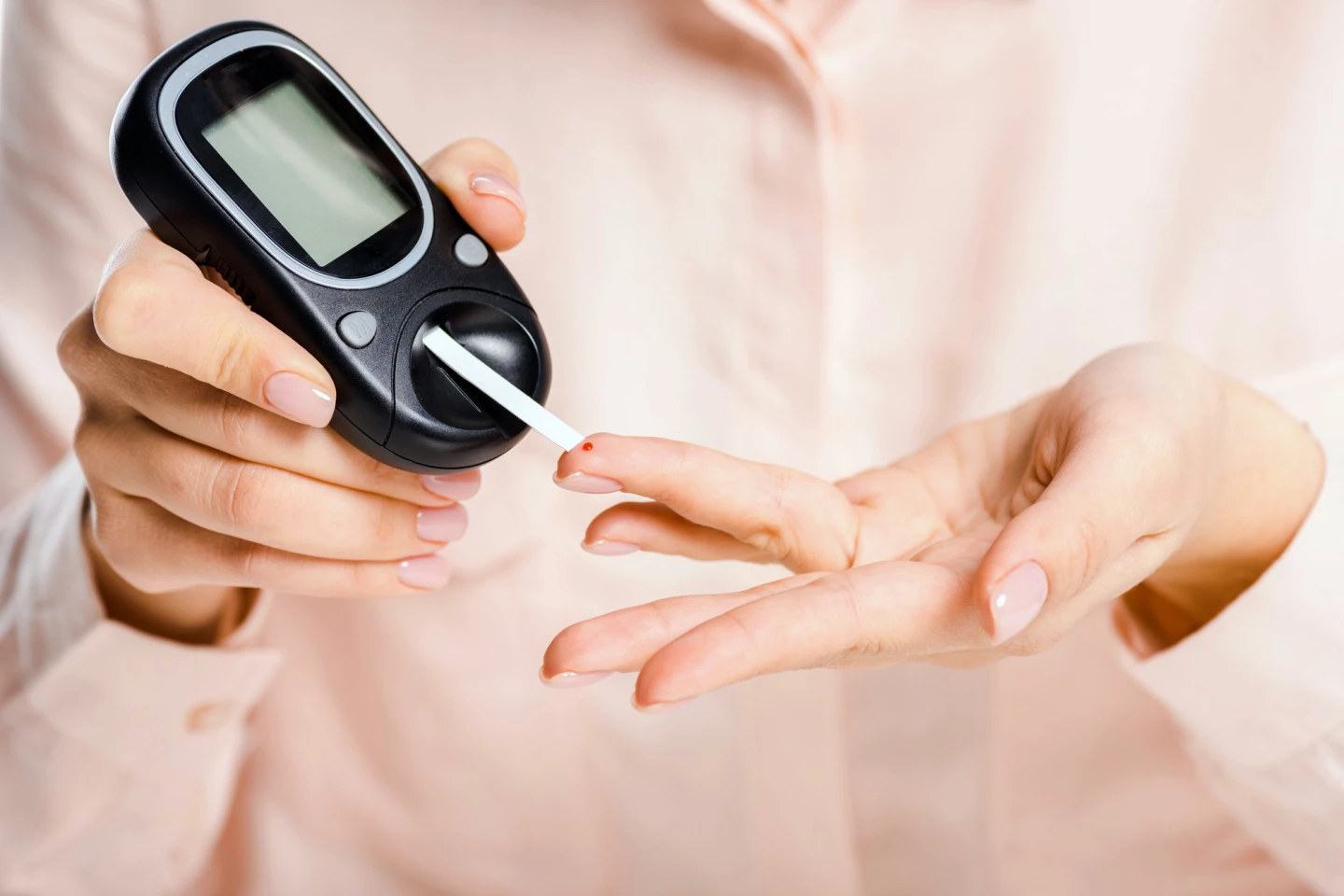Type 1 diabetics have a lower risk of experiencing a cardiovascular event such as a stroke or heart attack than type 2 diabetics, a new study has found. It highlights the fundamental difference between the two conditions and provides insights that could guide future treatments.
Both type 1 (T1D) and type 2 diabetes (T2D) are well-known risk factors for heart disease. This is because the metabolic abnormalities they cause contribute to atherogenesis, or the formation of plaques on the inside walls of arteries. As a result, diabetics tend to have greater numbers of plaques and smaller arterial diameters compared to non-diabetics.
While both conditions lead to elevated blood glucose levels, T1D and T2D are distinctly different. The former results from insulin deficiency, while the latter is caused by insulin resistance. A new study has looked at whether these pathophysiological differences affect a person’s cardiovascular risk.
“Type 1 and type 2 diabetes are fundamentally different diseases,” said Dr Bracha Goldsweig, a pediatric endocrinologist at Baystate Medical Center in Springfield, Massachusetts, and the study’s senior author. “People with type 1 diabetes do not produce insulin, while people with type 2 diabetes have insulin insensitivity. Our study shows that it is not appropriate to manage all people with diabetes identically, and dedicated studies for type 1 diabetes are necessary to understand the best treatment approaches.”
Perhaps surprisingly, few studies have examined the association between the pathology underlying T1D and cardiovascular disease. Instead, treatment of T1D-related cardiovascular disease tends to be extrapolated from research into patients with T2D. This was highlighted in a joint scientific statement from the American Heart and the American Diabetes Associations issued in 2014.

The researchers obtained data from the 2017-2022 Veradigm Metabolic Registry (VMR), which longitudinally follows more than 1.5 million patients and is designed to improve the quality of diabetes and cardiometabolic care across the United States. The study population included 5,823 T1D patients and 156,204 T2D patients over 758,643 visits to outpatient primary care or endocrinology facilities. Participants were aged 46 to 75. A total of 11,096 cardiovascular events occurred in the participants. Of that number, 45.3% had a stroke, 19.5% had a critical blockage in the lower limb arteries (limb ischemia), 17.1% had coronary artery bypass grafts (CABG), 17.5% had a heart attack (myocardial infarction), and 9.3% had stents to widen or unblock a coronary artery (percutaneous coronary intervention, PCI).
After analyzing the data, the researchers found that the probability of having any cardiovascular event was lower in patients with T1D than those with T2D. Patients with T1D had about 63% of the risk of having a cardiovascular event compared to type 2 patients. This lower probability in patients with T1D persisted across age groups 46 to 55 (64%), 56 to 65 (69%), and 66 to 75 (62%) in both female and male patients. When it came to individual cardiovascular events, after controlling for confounders, the results showed that patients with T1D had lower rates of myocardial infarction, PCI, stroke, and limb ischemia than patients with T2D. There was no difference in coronary artery bypass surgery rates between the two groups.
“The study’s findings suggest that the cardiovascular risk with type 1 diabetes is lower than previously thought, which has important implications for managing these patients,” said Dr Andrew Goldsweig, director of cardiovascular clinical research at Baystate Medical Center in Springfield, Massachusetts, and the study’s lead and corresponding author. He’s also married to his co-author, Bracha Goldsweig. “Our findings indicate that type 1 diabetes is associated with a significantly lower risk of cardiovascular events compared to type 2 diabetes, even after adjusting for various confounders such as age, diabetes control, and kidney function.

“The power of big data amplifies the results: With the enormous population included in this analysis, we were able to identify a large number of people with type 1 diabetes and compare them to those with type 2 diabetes, providing a comprehensive understanding of the differences in cardiovascular risk.”
While the present study suggests that type 1 diabetics have a lower risk of cardiovascular events than their type 2 counterparts, further study is needed to improve our understanding of the pathophysiology, prevention, and treatment of heart disease in patients with T1D.
“People with type 1 diabetes now live normal lifespans, and it is crucial to study this population to ensure they receive the best possible care,” said Bracha Goldsweig.
The study was published in the Journal of the Society for Cardiovascular Angiography & Interventions.
Source: Society for Cardiovascular Angiography & Interventions








